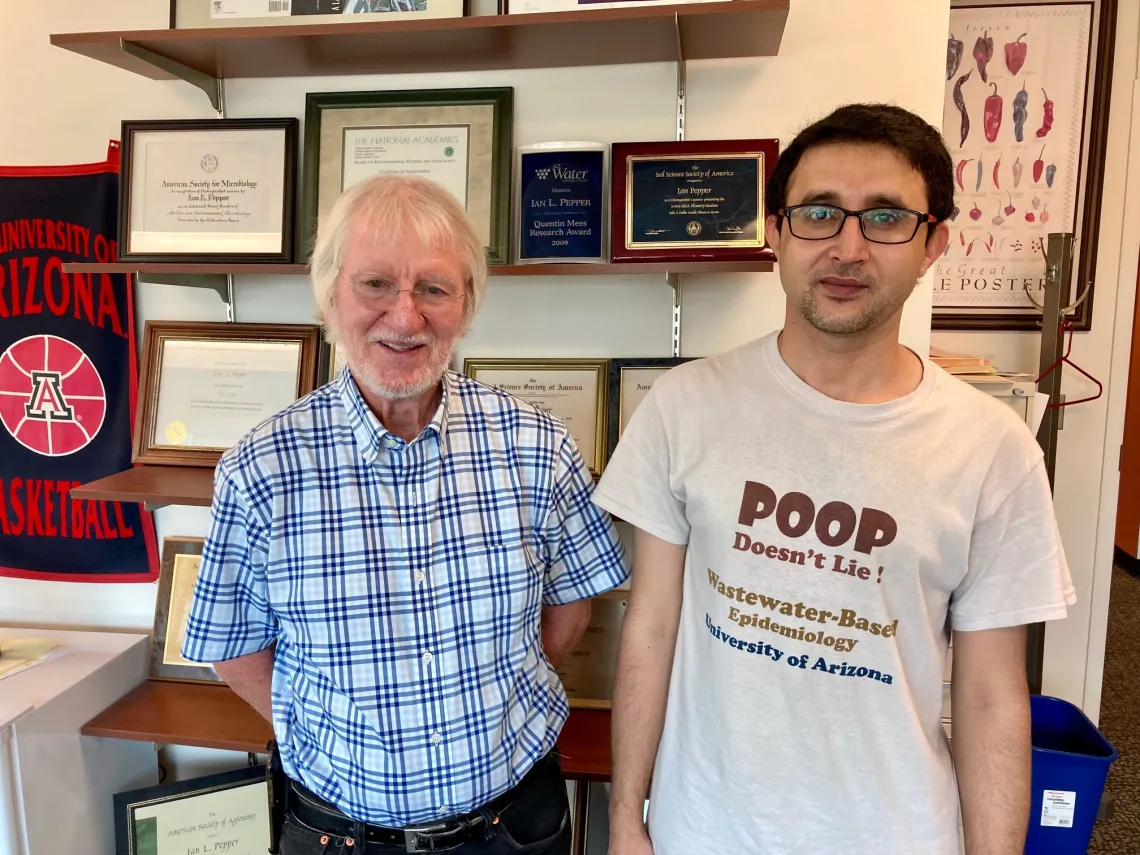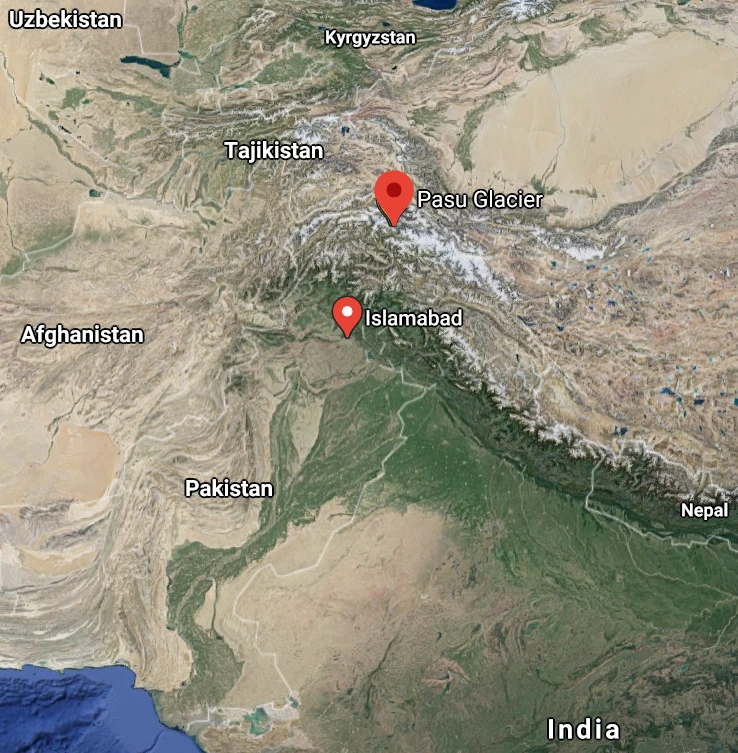Visiting Scholar studies antibiotic resistant genes during his time at UArizona

Photo: WEST Director Dr. Ian Pepper and Visiting Scholar Sabir Nawaz, WEST Center, July 2021
In early 2021, visiting scholar Sabir Nawaz collaborated with University of Arizona faculty and conducted research at the WEST Center. A PhD student from Quaid-i-Azam University Islamabad, Pakistan, Sabir’s research focus is antibiotic genes in environmental bacteria.
During his time at WEST Center, he gained extensive experience in microbial and molecular techniques used in an ongoing project focusing on the molecular detection and characterization of antibiotic resistant genes obtained from bacteria within natural environments. The bacteria were collected from the Passu Glacier in northern Pakistan, and strains found to harbor antibiotic resistance genes were brought to WEST for detailed analysis.
At WEST, Sabir characterized antibiotic resistant genes (ARGs) and mobile genetic elements (MGEs) using state-of-the-art methodologies including conventional PCR; real-time qPCR; and digital droplet PCR. He also sent genes to the UArizona Genomics Core (UAGC) for next generation sequencing to characterize plasmids and plasmid borne ARGs and MGEs.
Finally, Sabir completed successful functional cloning of ARGs, cloning the genes from natural/resistance bacteria and inserting these genes into sensitive bacteria (bacteria that did not previously have antibiotic resistance). Stating that his time in Arizona was extremely fruitful, Sabir worked closely with Dr. Ian Pepper at WEST Center, and on campus in the Kerry K. Cooper Research Lab and Bultrus (Dr. David) Lab.
Sabir will maintain his collaborations with UArizona faculty and hopes to publish three manuscripts in peer reviewed journals from his findings at the University of Arizona. He will continue his graduate research in Pakistan and hopes to determine if the genes that harbor antibiotic resistance from the glacier environment are the same or different from those found more-commonly in a clinical environment. If they are the same, findings will suggest a link between the clinical and natural environment (e.g. The glacier environment isn’t fully isolated). Alternately, if they differ, the studied ARGs will appear to have fully developed in the natural environment.
Sabir Nawaz’s stay at the University of Arizona was sponsored by a visiting scholarship awarded by the Higher Education Commission (HEC) of Pakistan under the International Research Support Initiative Program. Sabir will complete his PhD work in 2022. Upon graduation, he plans to apply for a postdoctoral position and remain in academia. We wish Sabir good luck!
Sabir Nawaz can be reached at sabirnawaz@bs.qau.edu.pk



